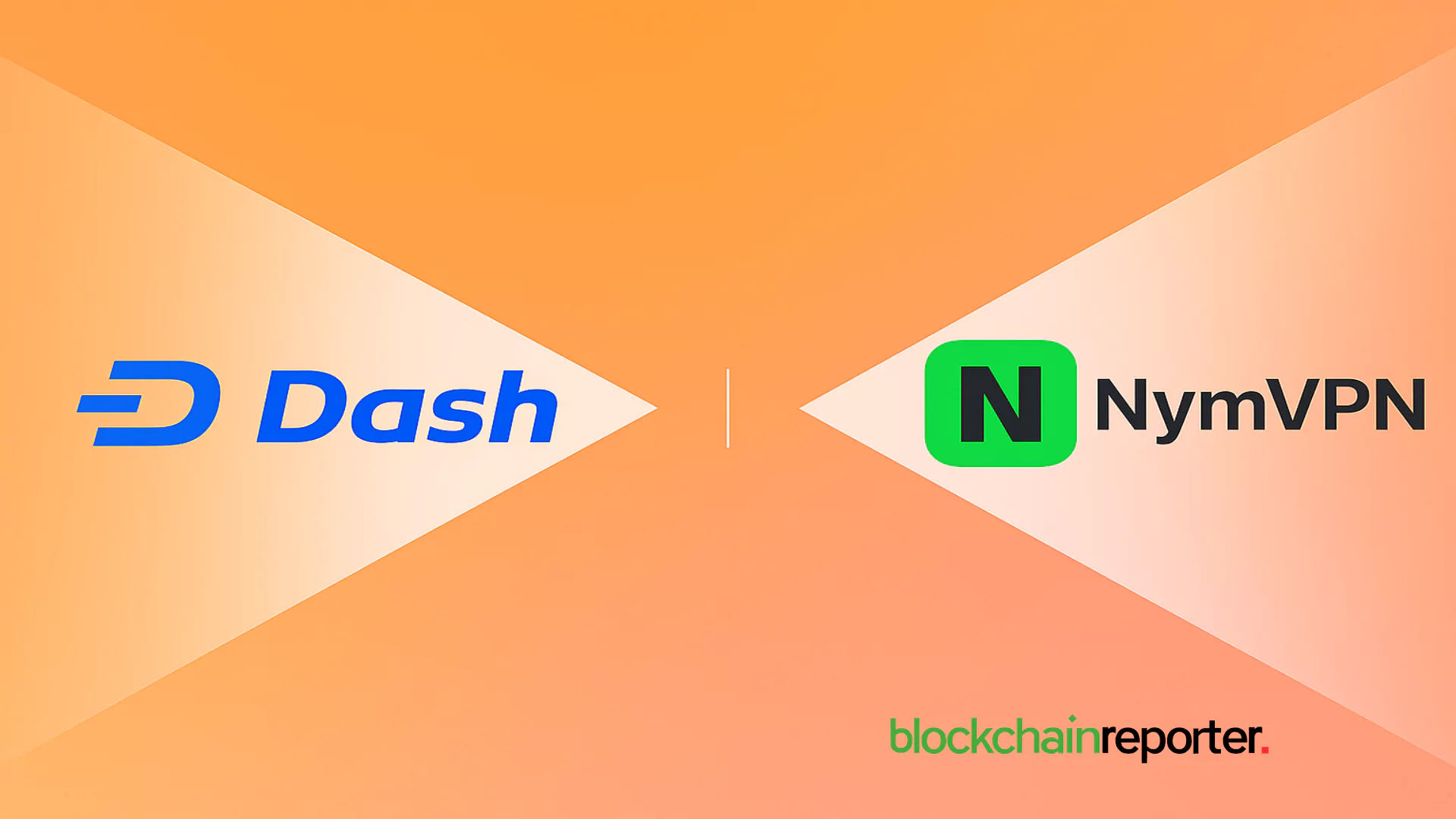Dash Teams Up With Snowden-Endorsed Nym to Power Private Payments on NymVPN

Dash, the digital-cash network that began life as Darkcoin, has been integrated as a payment option for NymVPN. It is a move that stitches together two long-standing projects in the privacy space and gives users a way to “pay for privacy with privacy.”
The integration lets NymVPN subscribers pay using Dash, which the companies say delivers fast, low-cost and censorship-resistant transactions. NymVPN, endorsed publicly by Edward Snowden, offers a two-tier service: a “Fast” WireGuard-based 2-hop VPN for everyday browsing and streaming, and an “Anonymous” 5-hop mixnet mode designed to protect metadata from sophisticated surveillance, including AI-driven analysis.
“By integrating Dash, we’re giving our users the ability to pay for privacy with privacy,” said Joël Valenzuela, core member of Dash DAO. “This partnership bridges a crucial gap in the privacy tech stack: you can now keep your identity safe when connecting to the internet and when paying for that protection.”
Why it Matters
One of the thorniest problems in online privacy is that buying privacy services often leaves a payment trail. Traditional payment rails expose names, billing addresses and other identifiers; many public blockchain payments also create transaction histories that can be analyzed or correlated. The Dash–Nym tie-up aims to close that gap by combining Dash’s optional privacy features and instant settlement with Nym’s metadata-resistant network.
“This collaboration with Dash strengthens our mission to offer privacy across different kinds of financial transactions,” said Nym’s CEO, Harry Halpin. “With Dash payments that offer a degree of privacy beyond most cryptocurrencies, our users can access NymVPN’s metadata-resistant mixnet, further shielding their transactions from mass surveillance.”
Dash is built for speed and low fees, attributes that make it practical for subscription payments. Launched in 2014 as Darkcoin, it was among the early cryptocurrencies to pioneer protocol-level privacy options and remains one of the few privacy-capable coins listed on major exchanges. Nym’s offering, by contrast, focuses on network-level protections: its mixnet adds hops and covers traffic to obscure who is talking to whom, and, the company says, to blunt the kind of large-scale metadata analysis increasingly powered by machine learning.
Taken together, Dash handles the payment leg without revealing identifiable financial rails, while NymVPN masks the communications leg. That combination, both projects argue, creates a fuller privacy posture for users who want to avoid leaving an identifiable trail either when they connect to the internet or when they pay for the protection.
A Blueprint, Not Just a Feature
Beyond the immediate convenience of a new payment option, Dash and Nym frame the integration as a broader blueprint for privacy tooling. Secure communications and private transactions are working together rather than in isolation. While payment censorship and surveillance pressures grow, the partnership points to interoperable privacy primitives as a practical defense.
The integration also marks a homecoming of sorts for Dash: a return to the currency’s privacy roots while emphasizing usability and low-cost everyday payments. These are the attributes the project says make Dash suitable both for ordinary purchases and for privacy-critical use cases.
NymVPN users will now see Dash among the available subscription payment methods. The companies highlight the attributes that make Dash attractive for this role: near-instant finality, low transaction costs, and optional privacy features that reduce the amount of traceable payment data.
NymVPN subscribers, meanwhile, can choose the mode that best fits their needs: the speedy WireGuard option for regular use, or the 5-hop mixnet for situations requiring stronger metadata protection. Overall, the Dash-Nym partnership is being pitched as a practical, consumer-facing answer: bringing together private payments and private communications into a single, seamless experience.
You May Also Like

VivoPower To Load Up On XRP At 65% Discount: Here’s How

UK and US Seal $42 Billion Tech Pact Driving AI and Energy Future
